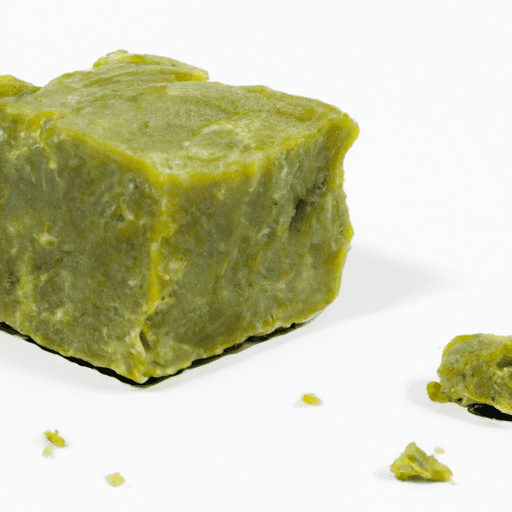The Flavorful Magic of Vegetable Bouillon Cubes
If you’re looking to add a burst of flavor to your dishes, without the hassle of making homemade broth from scratch, vegetable bouillon cubes are here to save the day. These tiny cubes of concentrated vegetable goodness have long been a staple in the kitchens of both home cooks and professional chefs alike. In this blog post, we’ll dive into the world of vegetable bouillon cubes, exploring their taste, common uses in cooking, nutritional value, and even some interesting history and facts.
The Taste of Vegetable Bouillon Cubes
Vegetable bouillon cubes pack an intense and savory taste that can instantly elevate any dish. Bursting with umami, these cubes are carefully crafted using a combination of dehydrated vegetables, spices, and natural flavorings. The result is a rich and complex flavor profile that adds depth to soups, sauces, stews, and even rice dishes. Think of it as a concentrated vegetable stock in a convenient, compact form.
Common Uses in Cooking
One of the main advantages of vegetable bouillon cubes is their versatility. They can serve as the perfect base for a wide variety of recipes, allowing home cooks to create delicious meals with minimal effort. Here are a few popular uses:
- Soup Starter: Dissolve a bouillon cube in hot water, add your favorite vegetables and proteins, and voilà - you have a hearty and flavorful soup in no time.
- Sauces and Gravies: Simply crumble a bouillon cube into your simmering sauce or gravy for an instant boost of flavor. It lends a rich taste to your dishes, making them utterly irresistible.
- Seasoning for Rice and Pasta: Drop a cube into the water when cooking rice or pasta for a delightful enhancement of taste. It infuses the grains or noodles with a subtle, savory essence.
Nutritional Value and Health Benefits
When it comes to nutritional value, vegetable bouillon cubes provide a considerable advantage over their meat-based counterparts. While the exact nutritional profile may vary depending on the brand, vegetable bouillon cubes typically offer a low-fat and low-calorie option. They are usually low in carbohydrates and are a valuable source of vitamins and minerals.
While some bouillon cubes may contain added sodium, there are low-sodium options available for those watching their salt intake. Furthermore, vegetable bouillon cubes can be an excellent alternative for vegetarians and vegans in need of a savory stock replacement that doesn’t compromise on flavor.
Historical Tidbits and Fun Facts
Believe it or not, bouillon cubes have a fascinating history. They were first invented in the late 19th century by Swiss-born chemist Julius Maggi. Initially, bouillon cubes were created as a way to provide a convenient and affordable solution for busy households. The invention quickly gained popularity and revolutionized the culinary world by simplifying the process of making broths and soups.
Today, vegetable bouillon cubes have evolved to cater to various dietary preferences and flavor profiles. They come in an array of options, from organic and gluten-free to herb-infused variations.
Final Thoughts
In summary, vegetable bouillon cubes are an essential pantry staple that no cooking enthusiast should be without. With their robust flavor, versatility in the kitchen, and nutritional benefits, they have rightly earned their place in the hearts and kitchens of both professional chefs and home cooks. So next time you’re looking to enhance the taste of your favorite dishes, reach for a vegetable bouillon cube and let the magic unfold!
Note: Before purchasing bouillon cubes, it’s always a good idea to check the ingredients and consult any dietary restrictions or allergies you may have.
Origin: Vegetable bouillon cubes are a concentrated form of vegetable stock commonly used as a flavoring agent in cooking. The exact origin of vegetable bouillon cubes is unclear, but the concept of bouillon, a broth or stock, dates back several centuries. The cubes themselves were popularized in the early 20th century, making them a convenient and long-lasting alternative to liquid stocks.
Common Uses: Vegetable bouillon cubes are used to add flavor to soups, stews, sauces, and various other dishes. They dissolve easily in hot liquids, making them a convenient choice for enhancing the taste of vegetarian or vegan recipes. Their concentrated nature means that they can be a pantry staple, easily stored and used whenever a quick and instant flavor boost is needed.
Nutritional Benefits: Vegetable bouillon cubes can contribute to the flavor of a dish without significantly altering its nutritional content. However, it’s important to note that the nutritional benefits vary depending on the brand and ingredients used. While they can provide some sodium, they typically contain little to no fat, cholesterol, or calories. Moreover, the flavors derived from the vegetables can offer additional vitamins and minerals, such as potassium and vitamin C.
Unique Properties or Historical Significance: One unique property of vegetable bouillon cubes is their ability to be easily transported and stored for extended periods. Due to their compact form and long shelf life, they became a staple food item during the World Wars when fresh ingredients were scarce. This enabled people to quickly and conveniently add flavor to their meals. The cubes have maintained their popularity to this day, becoming a pantry staple in many households around the world. Additionally, the availability of vegetarian and vegan bouillon cubes has made it easier for people following plant-based diets to enhance the flavor of their dishes.




Use the share button below if you liked it.
It makes me smile, when I see it.